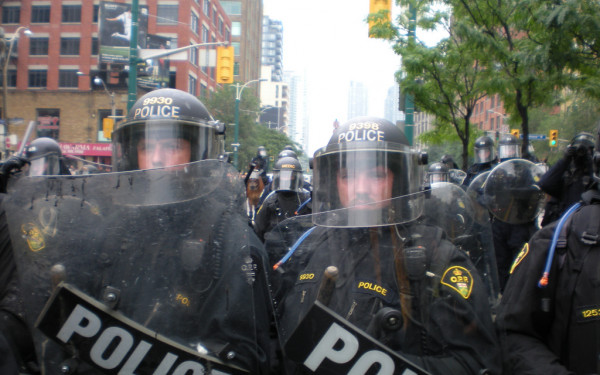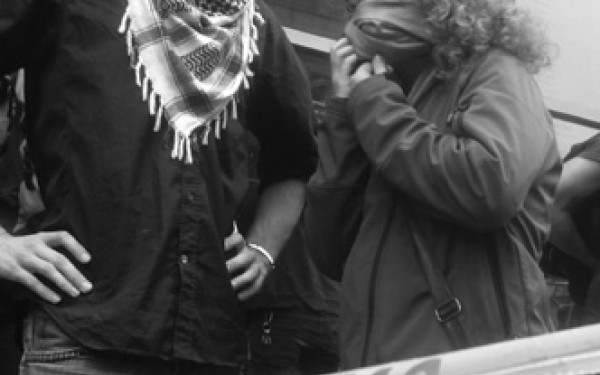G20 arrests continue
Three months later, Alex Hundert is nabbed in the night
Alex Hundert was arrested during the G20 and charged with three counts of conspiracy. Released in early July, his $100,000 bail stated that he could not participate in any public demonstrations.
On Friday night, Hundert was arrested again after participating in a panel discussion earlier in the day at Ryerson University.
“He spoke at Ryerson and he got home and they arrested him. They said he violated the conditions of his bail, because he isn’t permitted to participate in a protest,” said Judy Rebick. “That’s ridiculous. It was a meeting at a university.”
An activist, founder of rabble.ca and political science professor at Ryerson, Rebick invited Hundert to speak at the university as part of a panel called “Strengthening our Resolve.” Part of a seven person panel, Hundert spoke for less than 15 minutes about his arrest, incarceration and bail conditions.
“He didn’t say anything outrageous and even if he did, there is nothing illegal about saying something outrageous,” said Rebick. “I was horrified that the police were criminalizing behaviour that is essential to university, which is discussion.”
The crown had already tried to have Hundert’s bail revoked when he spoke with the CBC. They claimed that his media appearance was a form of protest. The judge threw the case out.
On Saturday morning, nearly 100 people turned out for a protest in front of the courthouse in downtown Toronto where Hundert was set to appear. Representatives from the Ontario Coalition Against Poverty, No One Is Illegal Toronto and Rebick spoke.
“It was amazing how many people showed up because the call was put out at midnight on Friday for 9:00 a.m. Saturday. So you had to be up at midnight and awake before 9:00 a.m.,” said Rebick.
After 1,100 people were arrested during the G20 Summit, held in Toronto from June 26 to 27, the city’s activist scene has had plenty of practice showing up to show support outside of courthouses.
Five people are still being held in jail, unable to secure a large enough surety to make bail.
Calling the police’s treatment of Hundert “harassment,” Rebick cited the previous attempt to revoke the activist’s bail. Hundert’s lawyer, John Norris, is now fighting an attempt by the crown to hold a three-day hearing into Hundert’s comments at Ryerson.
Hundert’s case might be a microcosm of the events that have taken place since the G20.
“The police arrested over 1,000 people and they charged a fairly large number of them with conspiracy, which is a very serious charge,” said Rebick. “There was a lot of discrediting of the police and I feel they have to justify what they did, with both the money spent and the harassment and abuse that happened.
“The police and crown are trying to justify an extraordinary level of repression, certainly one I have never seen in my life,” she continued. “If I listen to my friends who were arrested during the War Measures Act, it’s very similar to how they arrested people here: predawn raids, nobody knowing why they are being arrested. But the War Measures Act was called because people were being murdered. What happened here? A few windows were broken.”
A spokesperson for the Toronto Police Service declined to comment, as the case is currently before the court.
This article originally appeared in Volume 31, Issue 06, published September 21, 2010.

__900_506_90.jpg)




